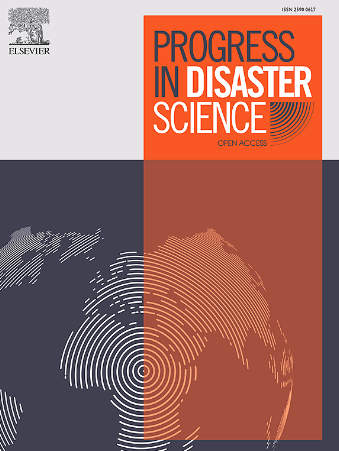COVID-19 减缓措施的社会经济影响和新加坡的脆弱性
IF 3.8
Q3 ENVIRONMENTAL SCIENCES
引用次数: 0
摘要
从 2020 年初开始,世界各国实施了减少 COVID-19 传播的缓解措施,包括社会隔离;关闭公共交通、学校和非必要企业;加强卫生;戴口罩;体温监测;隔离和追踪接触者。这些缓解措施有助于减少生命损失,但也扰乱了数十亿人的生活。在此,我们将评估用于管理灾难的减灾措施是否也会产生负面影响,给弱势人群带来过重负担。我们利用 2020 年 4 月至 7 月封锁期间对新加坡公民和永久居民的调查数据来评估新加坡 COVID-19 减灾措施的社会和经济影响。结果显示,超过 60% 的人口在社会生活方面受到了负面影响,40% 的人口在家庭经济方面受到了负面影响。贝叶斯层次逻辑回归显示,减缓措施的负面经济影响在一定程度上受到社会经济和人口因素的影响,而这些因素与潜在的社会脆弱性是一致的。我们的研究结果表明,在应对 COVID-19、慢发性灾害和气候变化等大规模危机时,一些减灾措施的负担本身就可能构成危机,从而对人口中的弱势群体造成不成比例的影响。本文章由计算机程序翻译,如有差异,请以英文原文为准。
The socio-economic impacts of the COVID-19 mitigation measures and vulnerabilities in Singapore
Starting in early 2020, countries around the world imposed mitigation measures to reduce transmission of COVID-19 including social distancing; closing public transport, schools, and non-essential businesses; enhanced hygiene; face masks; temperature monitoring; quarantining; and contact tracing. These mitigation measures helped reduce loss of life, but also disrupted the lives of billions of people. Here we assess whether mitigation measures used to manage a disaster can also have negative impacts that disproportionately burden vulnerable sub-sets of a population. We use data from a survey of Singaporean citizens and permanent residents during the lockdown period between April and July 2020 to evaluate the social and economic impacts of Singapore's COVID-19 mitigation measures. Our results show that over 60 % of the population experienced negative impacts on their social lives and 40 % on household economics. Bayesian Hierarchical Logistic Regress reveals that the negative economic impacts of the mitigation measures were partly influenced by socio-economic and demographic factors that align with underlying societal vulnerabilities. Our findings suggest that when dealing with large-scale crisis' such as COVID-19, slow-onset disasters, and climate change, some of the burdens of mitigation measure can constitute a crisis in their own right which could disproportionately impact vulnerable segments of the population.
求助全文
通过发布文献求助,成功后即可免费获取论文全文。
去求助
来源期刊

Progress in Disaster Science
Social Sciences-Safety Research
CiteScore
14.60
自引率
3.20%
发文量
51
审稿时长
12 weeks
期刊介绍:
Progress in Disaster Science is a Gold Open Access journal focusing on integrating research and policy in disaster research, and publishes original research papers and invited viewpoint articles on disaster risk reduction; response; emergency management and recovery.
A key part of the Journal's Publication output will see key experts invited to assess and comment on the current trends in disaster research, as well as highlight key papers.
 求助内容:
求助内容: 应助结果提醒方式:
应助结果提醒方式:


